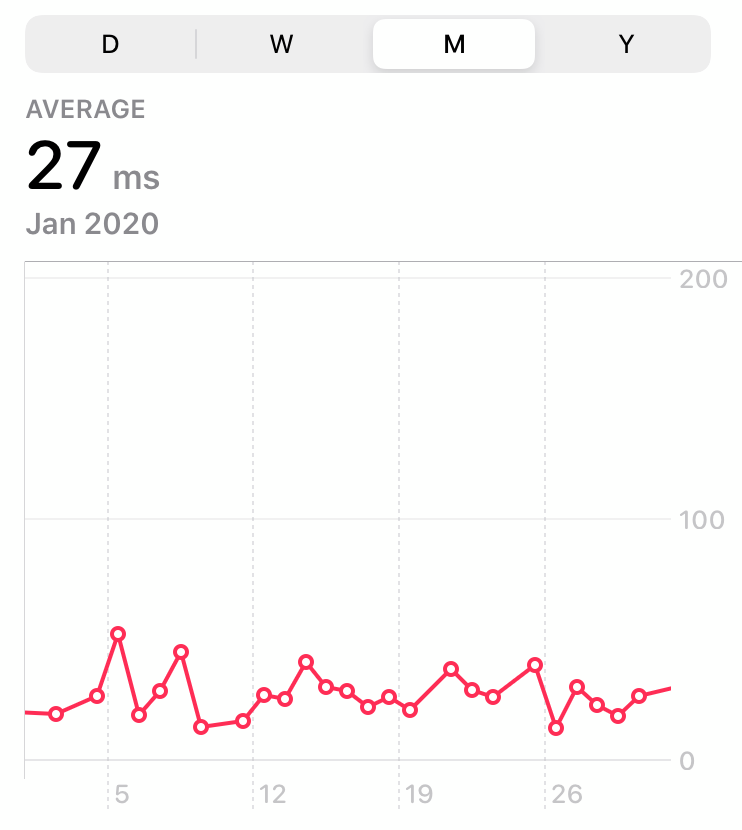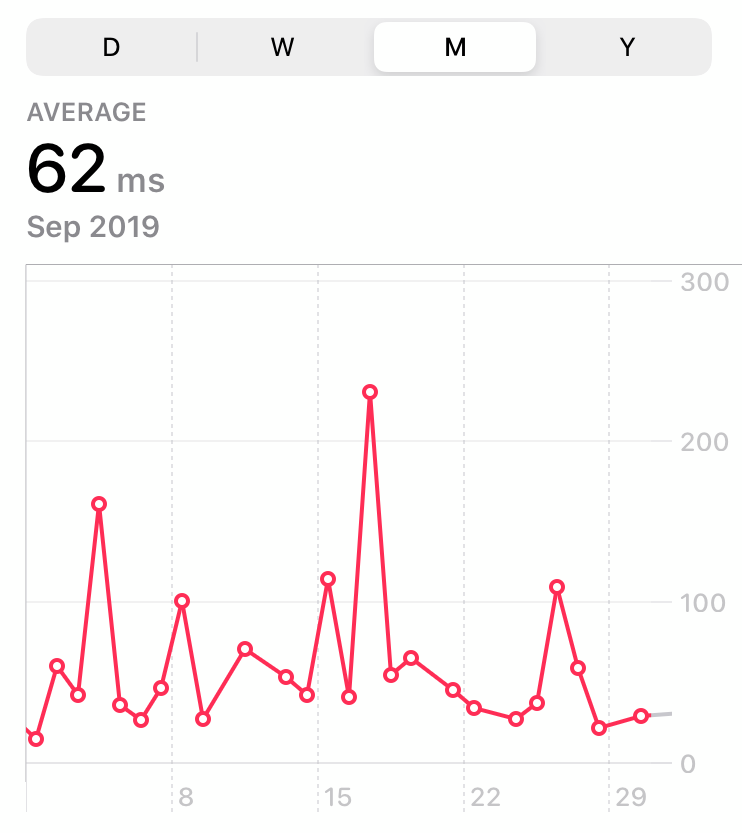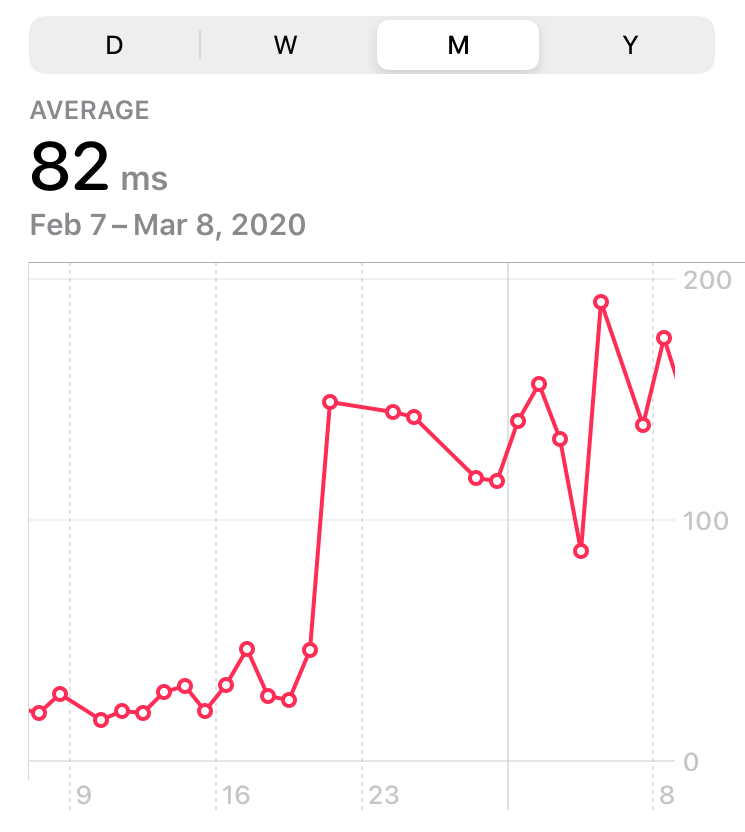Does the Apple Watch 6 oximeter matter? by jgn on Monday, September 21, 2020 in Health and Technology
I'm not sure people realize what a boon the Apple Watch's oximeter (blood oxygen app) may be to one's tracking of personal health, so I thought I'd provide some example data to provide a feel for what you'll be able to monitor. Of course, a lot will depend on what people discover about the watch's oxygen monitoring: Accuracy, the granularity of data, etc. But I think it's going to be a great help for people who want to understand better the relationship between blood oxygen levels and heart health. Additionally, some people use oximeters to measure their oxygen out of concern for hypoxia that is induced by the novel coronavirus.
The TL;DR on this is that with oximeter readings and metrics for heart rate variability, you can get some insights into possible sleep apnea that can increase heart rate variability and potentially cause atrial fibrillation (which can in turn provoke stroke or heart failure).
All graphs and charts are shared with the permission of the person who originated the data.
So the first image shows the overnight blood oxygen this person has on a typical night using a CPAP machine. This looks good. All SpO2 (peripheral oxygen saturation) values are above 90%. The person's pulse is low. WebMD says: "A blood oxygen level lower than 89% means you may not have enough oxygen in your blood to meet your body's needs. This could be because there’s a problem with your heart or lungs." These values were collected with a Wellue O2Ring.
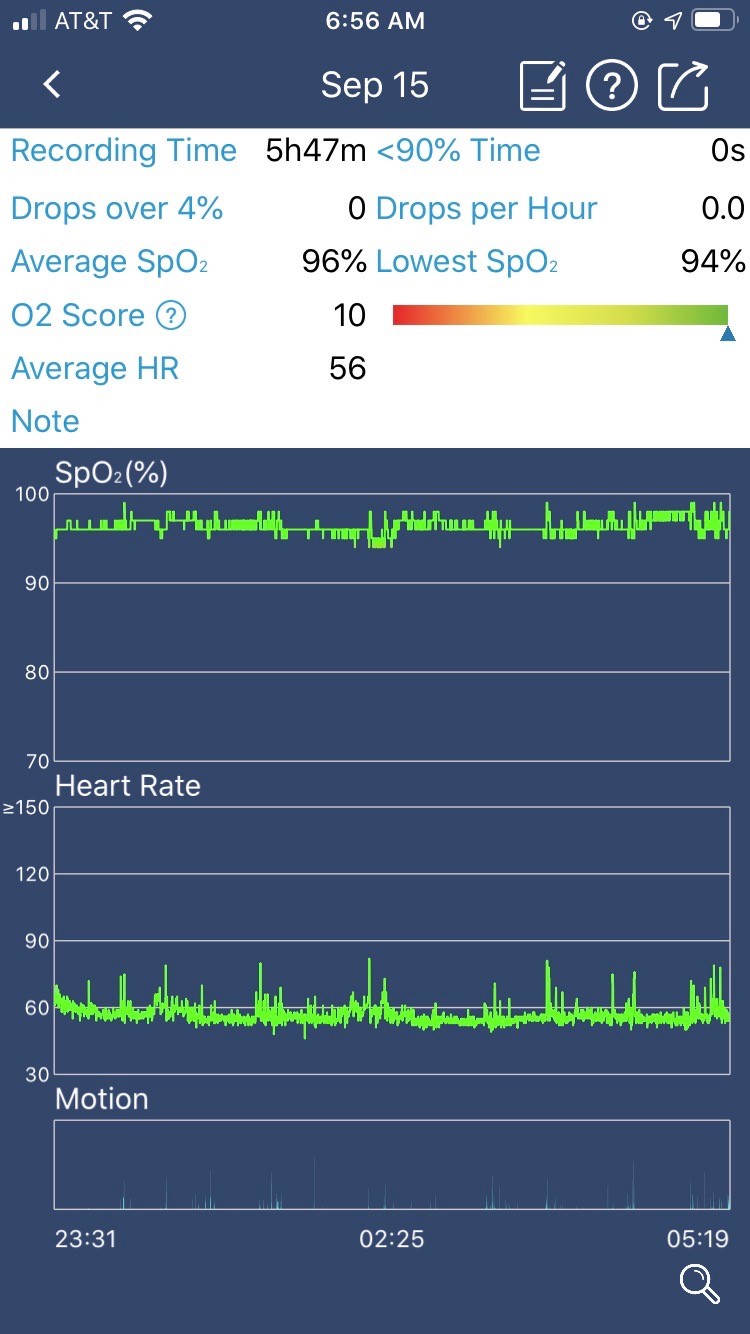
Now, one way you might be starving your brain and body for oxygen is if you have sleep apnea. This person uses a CPAP device every night, but recently when traveling did not have the CPAP. Here's what can go wrong.
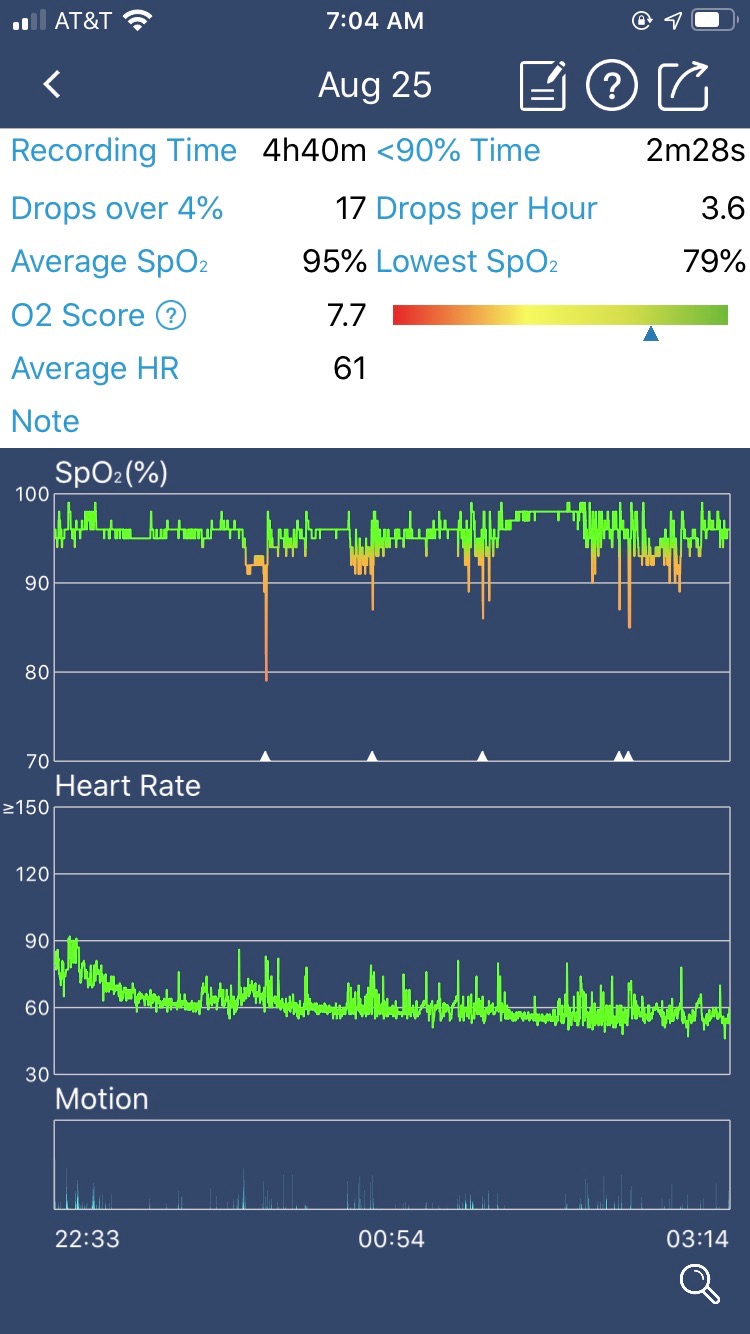
As you can see in the second image, during sleep apnea, one's blood oxygen level can spike way down.
Prolonged episodes of sleep apnea can cause a lot of problems. The Mayo Clinic says: "Sudden drops in blood oxygen levels that occur during sleep apnea increase blood pressure and strain the cardiovascular system. Having obstructive sleep apnea increases your risk of high blood pressure (hypertension). Obstructive sleep apnea might also increase your risk of recurrent heart attack, stroke and abnormal heartbeats, such as atrial fibrillation. If you have heart disease, multiple episodes of low blood oxygen (hypoxia or hypoxemia) can lead to sudden death from an irregular heartbeat."
I'm not a doctor, but there are articles (example) suggesting that prolonged sleep apnea with its impact on blood oxygen can affect heart rate variability (HRV), which would seem to be a leading indicator for issues such as atrial fibrillation (afib) which is a form of cardiac arrhythmia that can lead to a stroke or heart failure. The Apple Watch can track this. Here are three examples of HRV readings from the Apple Health app. The first one shows relatively normal HRV for this person; the second shows elevate readings; and then the third image shows HRV leading up to the onset of afib.
Once this person started using a CPAP, the HRV settled down, and the heart reverted from afib to normal "sinus" rhythm.
In short, had this person known his or her oxygen levels, there might have been an earlier conversation with a physician leading to some controls (such as better diet, reduced caffiene and alcohol consumption, more exercise, the use of a CPAP machine . . .) that might have reduced the likelihood of afib occurring.
